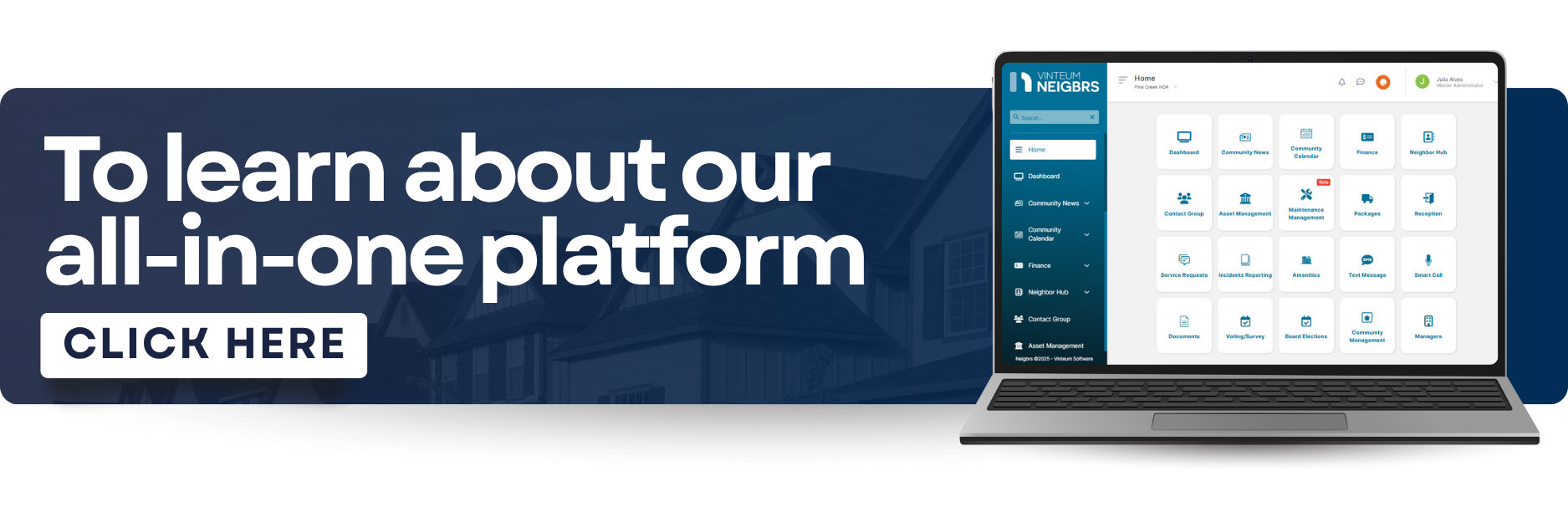
Are you aware of the potential harm caused by unethical HOA board members? In this guide, we provide actionable steps to help you take control and protect your homeowners’ association. From understanding ethical responsibilities to identifying signs of misconduct, we empower you to recognize and confront unethical HOA board members head-on. Get ready to safeguard your community and create a thriving environment for all.
Table of Content
- Understanding Ethical Responsibilities of HOA Board Members
- Signs of Unethical HOA Board Members
- Consequences of Unethical Behavior
- Taking Action: Dealing with Unethical HOA Board Members
- Final points on unethical behavior from HOA Board Members
Understanding Ethical Responsibilities of HOA Board Members
HOA board members play a vital role in managing and maintaining your community. It’s essential to understand their ethical responsibilities.
These responsibilities include following the HOA’s rules, making decisions that benefit the community, and promoting transparency and fairness.
Ethical board members show integrity, take responsibility for their actions, and genuinely care about the community’s needs.
For example, let’s say there’s a big repair project. Ethical board members would carefully review different contractor bids to choose the best option. They would keep residents in the loop, explaining the project details and asking for their input before making a final decision. Throughout the process, they would be open to questions and concerns, making sure homeowners feel heard and involved. By being fair and transparent, ethical board members build trust and create a positive community environment.
When it comes to managing finances, ethical board members maintain accurate and transparent records. They conduct regular audits to prevent any mismanagement or fraud. They share clear financial reports with residents. If there’s a potential conflict of interest, ethical board members disclose it and step back from decision-making to ensure fairness.
By embracing their ethical responsibilities, board members lay the groundwork for a harmonious and thriving community. Homeowners can have confidence that their interests are being represented.
Signs of Unethical HOA Board Members
To effectively address unethical behavior, it’s important to be able to spot the signs. Watch out for warning signals like:
- Conflicts of interest
- Favoritism
- Misusing funds
- Lack of transparency
- Disrespectful treatment of residents
Unethical board members might ignore the rules, make decisions without involving the community, or simply brush off homeowner concerns.
By staying alert and attentive, you can recognize these indicators and take the necessary steps to address the situation.
For instance, let’s say you notice that a board member consistently awards contracts to their family or friends, disregarding other qualified options. This could indicate favoritism and a potential conflict of interest.
Or, if you come across instances where funds are being used for personal expenses rather than community needs, it could be a clear misuse of funds.
Lack of transparency becomes apparent when board members make decisions without involving homeowners. It’s also a concern when only one or a few members take charge without consulting the rest of the board. Another red flag is when the board fails to provide clear information about finances when requested by the manager or residents.
If you witness board members being dismissive, rude, or disrespectful towards residents, it’s a sign of an unhealthy and unethical dynamic.
By being vigilant and recognizing these signs, you can take appropriate action, such as gathering evidence, communicating concerns with fellow homeowners, and engaging in open discussions with the board. Addressing unethical behavior promptly helps maintain a fair and harmonious community environment.
Consequences of Unethical Behavior
Unethical behavior by HOA board members can have serious consequences that harm the community. For example, if they mishandle the finances, it can lead to higher HOA fees and budget shortfalls. It can also lead to money disappearing through embezzlement (where funds meant for the community go missing).
When transparency is lacking, trust among residents crumbles, leading to divisions within the community. It becomes increasingly difficult to make decisions together, and people start to doubt each other’s intentions. Homeowners might feel left out of crucial discussions, fueling a sense of suspicion and discord.
Ethical breaches by board members can also result in legal troubles, leaving the association open to potential lawsuits. If board members fail in their duty to properly allocate funds and respect HOA governing documents, homeowners may seek legal action. This can damage the association’s reputation.
Inappropriate behavior can also cause apathy among residents, and board members may become burnt out.
When a few board members engage in unethical behavior, it can create an imbalance in responsibilities and workload. It puts a burden on those who maintain ethical standards.
When these unethical practices continue, homeowners can become disinterested and lose trust. This disengagement can make it difficult to get the community involved and maintain a vibrant neighborhood.
Unethical behavior by HOA board members can have far-reaching consequences. As seen in the tragedy of the Champlain Tower collapse in Surfside, Florida, where allegations of negligence and inadequate maintenance by the board have been raised.
To prevent these potentially disastrous consequences, it’s crucial to address unethical behavior right away. Holding board members accountable and encouraging an ethical culture can help rebuild trust.
Taking Action: Dealing with Unethical HOA Board Members
When faced with unethical HOA board members, it’s essential to take action to protect the community’s interests. Here are four key steps you can take:
Communicate your concerns
Reach out to fellow homeowners and form alliances to create a united front. By sharing your concerns, you can gather support and demonstrate to the board that multiple residents are affected by this issue. For example, you can start by talking to your neighbors during community events. You could also organize informal gatherings to discuss the issues and gather feedback. By building a strong network of concerned residents, you increase your collective influence and send a clear message to the board.
Document instances of misconduct and gather evidence
Keeping a record of specific incidents is crucial for substantiating your claims. Maintain a record of particular incidents, conversations, or any relevant documents that can support your case. Make sure to include dates, times, and the names of individuals involved. This evidence will be invaluable when presenting your concerns and seeking a resolution.
Engage in a constructive discussion
Request a meeting with the board to discuss your concerns. Use your documented evidence to support your claims. It is important to provide a clear and concise explanation of the wrong behavior you’ve observed. Offer constructive suggestions or proposed solutions to address the issues. It is essential to demonstrate your commitment to finding solutions rather than merely pointing out problems. For instance, if transparency is a concern, suggest implementing regular financial reporting. If the issue is communication, you could recommend using different communication tools or HOA Management Software.
HOA management software is a powerful solution that improves communication and promotes transparency. It makes important information easily accessible to everyone in the community. It can also be incredibly helpful in reducing overwhelm for the board. The software automates routine manual tasks, allowing board members to save time and energy. By using HOA management software, such as Neigbrs by Vinteum, you can maintain organized records and foster a culture of responsibility, accountability, and trust.
Book your free demo today and discover how our platform can help your community thrive!

Seeking External Assistance
Sometimes, seeking outside help becomes necessary to tackle unethical behavior within an HOA community. Here are two options to consider:
- Legal counsel: Getting advice from attorneys who specialize in HOA matters can guide you on your rights and navigate any legal complexities. They can assess the situation, review governing documents, and provide insights into possible legal actions. Experienced legal counsel can represent your interests and ensure a thorough and effective approach.
- Mediation services: Mediators act as neutral third parties and help facilitate productive discussions to find resolutions. They create a safe space for all parties involved to openly express their concerns and work together to find common ground. Mediation can be beneficial when conflicts or breakdowns in communication arise among homeowners, board members, or association managers. A skilled mediator can guide the process towards a fair and amicable resolution.
When seeking outside assistance, make sure to choose professionals with expertise in HOA matters. They should be familiar with the specific laws and regulations governing community associations. By involving experienced attorneys or qualified mediators, you can benefit from their knowledge.
Remember, turning to external assistance should be considered when internal efforts have been unsuccessful. By seeking outside help, you can gain valuable advice, protect your rights, and work towards restoring ethical standards.
Final points on unethical behavior from HOA Board Members
In conclusion, it’s important to recognize and address unethical HOA board members to protect the community’s interests. By being vigilant and taking action, homeowners can promote transparency and fairness.
Remember to communicate your concerns, document instances of misconduct, and engage in constructive discussions with the board. If internal efforts fail, consider seeking external assistance.
Addressing unethical behavior promptly is crucial to preventing negative consequences.
Want to learn more about the role and responsibilities of an HOA board of directors? Download our free ebook packed with helpful information and valuable tips on being an amazing board member.




